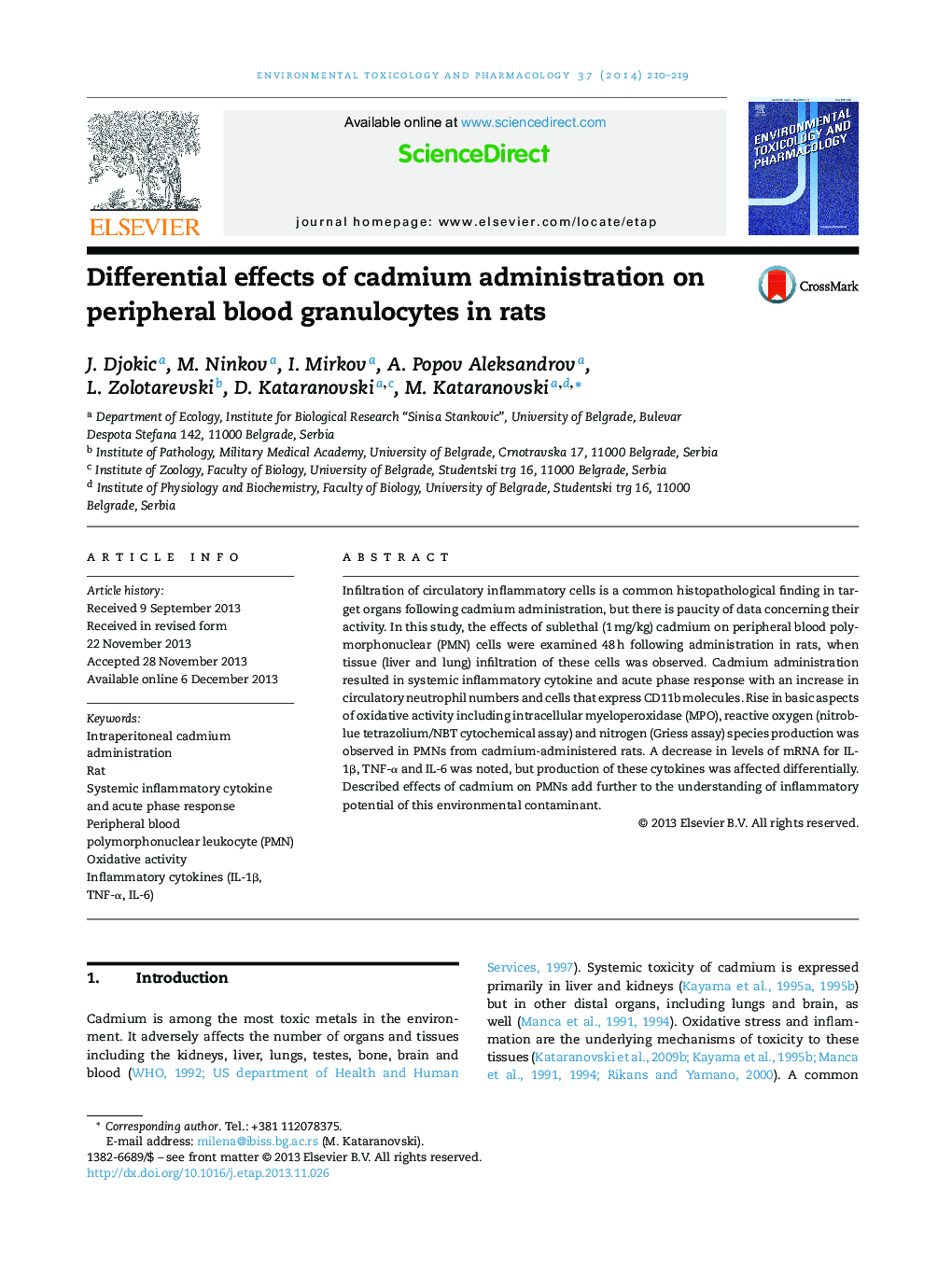| Article ID | Journal | Published Year | Pages | File Type |
|---|---|---|---|---|
| 2583992 | Environmental Toxicology and Pharmacology | 2014 | 10 Pages |
•Effect of cadmium in vivo on peripheral blood polymorphonuclears (PMN) in rats.•Neutrophil infiltration in liver and lungs 48 h following administration observed.•Inflammation in circulation and rise in neutrophil number noted at that time point.•Increase in CD11b+ granular cells and oxidative activity imply their activation.•Decreased mRNA levels of granulocyte cytokines, but differential production noted.
Infiltration of circulatory inflammatory cells is a common histopathological finding in target organs following cadmium administration, but there is paucity of data concerning their activity. In this study, the effects of sublethal (1 mg/kg) cadmium on peripheral blood polymorphonuclear (PMN) cells were examined 48 h following administration in rats, when tissue (liver and lung) infiltration of these cells was observed. Cadmium administration resulted in systemic inflammatory cytokine and acute phase response with an increase in circulatory neutrophil numbers and cells that express CD11b molecules. Rise in basic aspects of oxidative activity including intracellular myeloperoxidase (MPO), reactive oxygen (nitroblue tetrazolium/NBT cytochemical assay) and nitrogen (Griess assay) species production was observed in PMNs from cadmium-administered rats. A decrease in levels of mRNA for IL-1β, TNF-α and IL-6 was noted, but production of these cytokines was affected differentially. Described effects of cadmium on PMNs add further to the understanding of inflammatory potential of this environmental contaminant.
